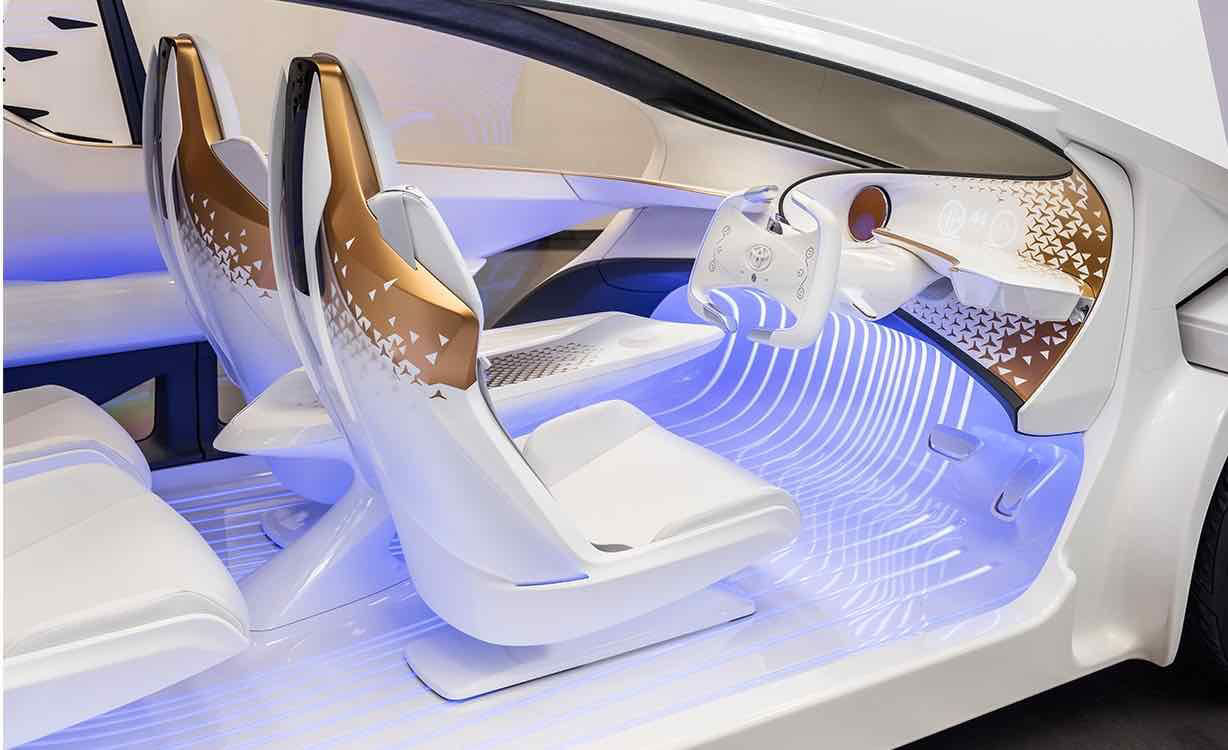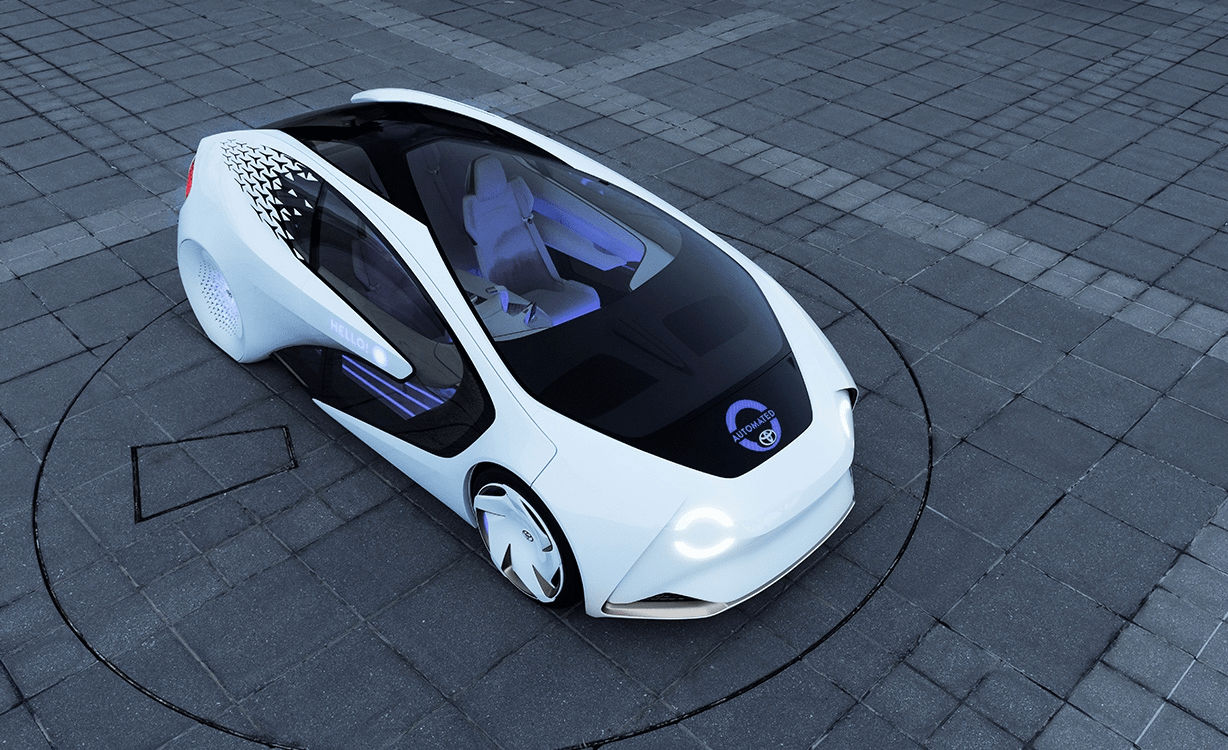Select a province & language
Entrance to this website assumes you have read and agree to these Legal Terms and Conditions and the Privacy Policy.
Entrance to this website assumes you have read and agree to these Legal Terms and Conditions and the Privacy Policy.
It’s 7:15pm, and you’ve just driven into Montreal for a weekend getaway. You’re exhausted after a long journey, and desperate to find the closest poutine place and a decent hotel—in that order. Thankfully, your car’s noticed that you haven’t stopped to eat all day and you’re looking sleepy, and it’s already set you on a course for La Banquise and a great hotel in the area. Oh, and it also let you know your favourite band is playing at Club Soda tomorrow night.
This is the (near) future pitched by Toyota, and demonstrated in their Concept-I models at the 2017 Tokyo Motor Show. Their virtual co-pilot, dubbed “Yui,” is an artificially intelligent (AI) assistant that’s designed to learn a driver’s preferences and feelings, anticipate their needs, and maximize their relaxation and safety.
These are lofty goals, but Yui has a comprehensive toolbox at its disposal; the AI can analyze a driver’s facial expressions, examine their past driving habits, and even scan their Instagram account to learn about their interests. All this information is used to provide a thoroughly personalized, pleasant driving experience.

If this all sounds like the role of a romantic partner, it’s intentional. “By using AI technology, we want to expand and enhance the driving experience, making cars an object of affection again,” Makoto Okabe, general manager of Toyota’s EV business planning division, recently told Reuters. Toyota has long had a stated goal of making vehicles that elicit “Aisha,” (“beloved car” in Japanese) and the company hopes that Yui will likewise inspire a long-term relationship. It’s designed to live in the cloud, and can follow along from vehicle to vehicle as an owner purchases new cars throughout their lifetime.
Sensory technology isn’t an inherently revolutionary feature in the automotive world—cars have long surveyed their surroundings to prevent fender benders or stop a driver from backing up into a wall. But automotive manufacturers have rarely turned their gaze inwards. Toyota’s introduction of Yui signals a shift towards the driver’s experience, one that dismantles the traditional boundaries between driver, car, and environment.
Of course, there are compelling design challenges involved with introducing such transformative technology. Yui’s creators continually balanced driver comfort with driving safety when launching new features, such as establishing systems to ensure it doesn’t dim the lights or create relaxing smells in a busy driving environment. And to prevent misinterpreting a driver’s “relaxed” face as one of “about to fall asleep,” they’ve also utilized advanced facial recognition technology that can determine the intricacies of each driver's unique displays of emotion. “Deep learning technology is utilized to create parameters for facial expressions, movement, tone of voice, and other indicators of emotion to make a comprehensive determination of the driver’s emotions,” explains Makoto Okabe, Toyota’s General Manager of EV Business Planning Division. “The aim is to accurately recognize the driver’s emotion in various environments based on subtle changes in emotion.”
Yui will make its trial-run debut in 2020, but before its big launch, Toyota will invest $1 billion towards advancing development on self-driving cars and AI technology. Given the commitment from Toyota, it’s fair to say that this burgeoning relationship will only be getting stronger.
